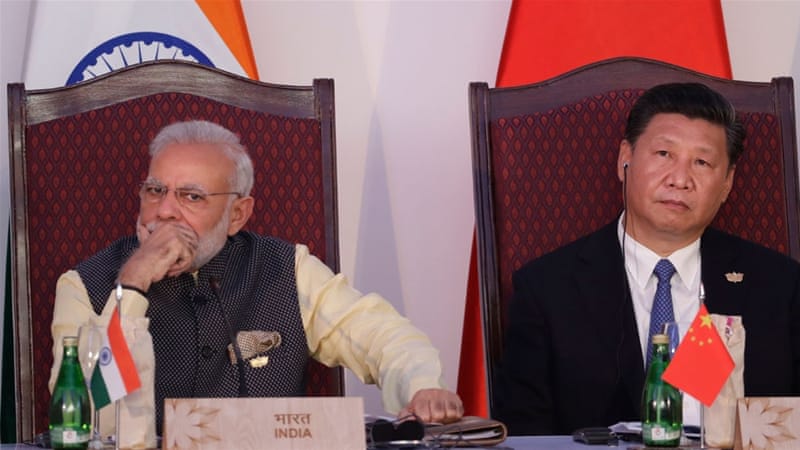Beijing demands New Delhi must ‘immediately withdraw troops’ from disputed border amid Donglang stand-off.
China says India has been building up troops along its side of the border and demands an “immediate withdrawal” amid an increasingly tense stand-off in a remote frontier region high in the Himalayas.
The stand-off on a plateau, which lies at the China-India-Bhutan junction, is one of the worst border disputes between the nuclear-armed rivals in more than 30 years.
On Thursday, China’s Foreign Ministry demanded India must “immediately withdraw troops” from the region, known as Donglang in Beijing, and Doklam in New Delhi, if it cherishes peace.
The plateau is currently disputed between China and Bhutan with India supporting Bhutan‘s claim over it.
“It has already been more than a month since the incident, and India is still not only illegally remaining on Chinese territory, it is also repairing roads in the rear, stocking up supplies, massing a large number of armed personnel,” China’s foreign ministry said in a statement.
“This is certainly not for peace.”
READ MORE: China demands India pulls back troops in border dispute
India, meanwhile, denied any such military buildup.
In a statement to parliament on Thursday, Foreign Minister Sushma Swaraj urged dialogue based on a written common understanding regarding the border intersection reached in 2012.
“India always believes that peace and tranquility in the India-China border is an important pre-requisite for smooth development of our bilateral relations,” Swaraj said, according to a transcript of her remarks released by her office.
“We will continue to engage with the Chinese side through diplomatic channels to find a mutually acceptable solution.”
‘Bottom line’
The standoff began in June when Chinese troops began building a road through the plateau.
|
|
